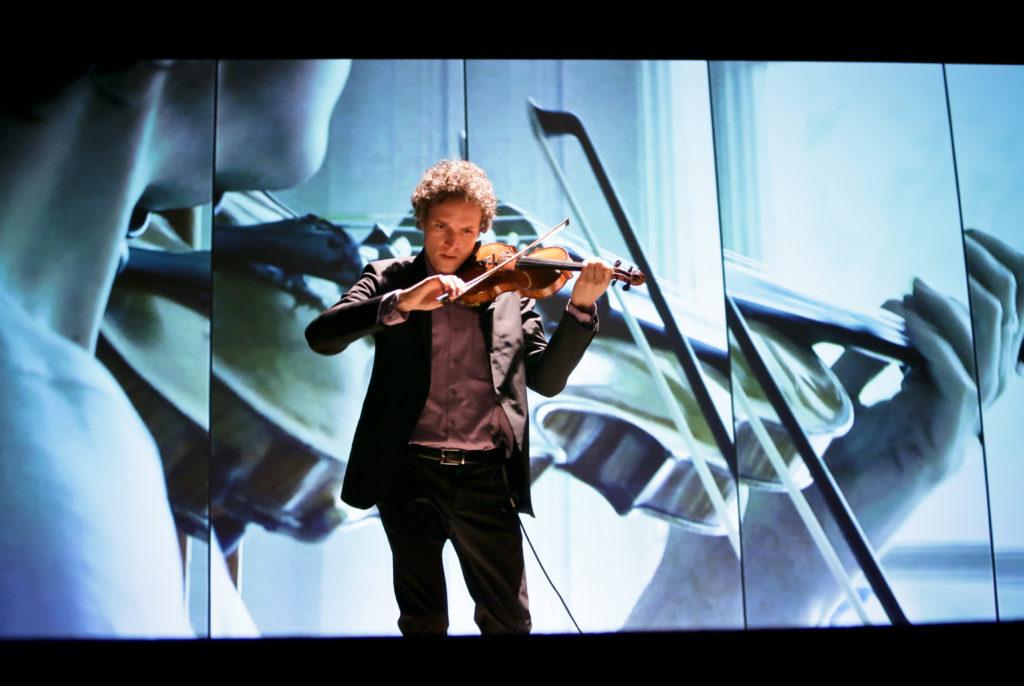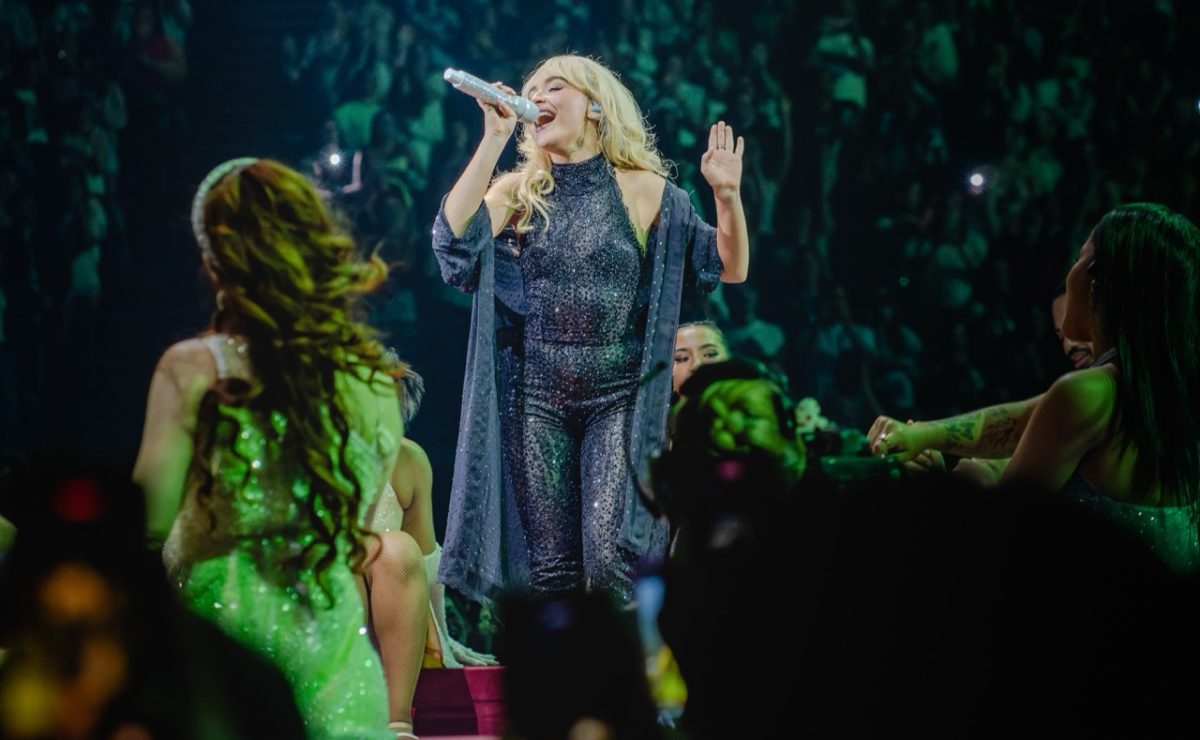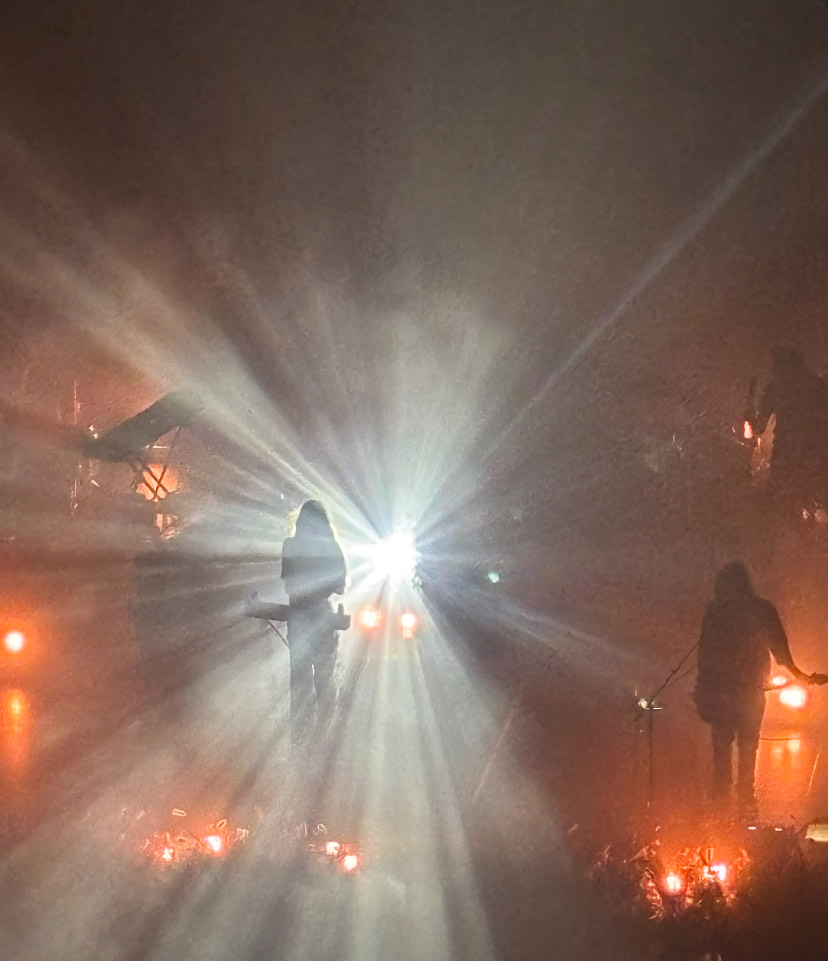
Art in all its forms is witnessed by people the artist may never meet, only seeing through the boundary of a stage or a screen, and yet there is a deep intimacy in that connection. Fain, with the help of composer Philip Glass, choreographer Benjamin Millepied and radio personality Fred Child, looks at how technology can bring people together in extraordinary ways. Yet they also invite us to wonder: What connections are lost in the digital age? And how do we restore them to our lives?
Portals, a montage of music, dance, spoken word and film, is a multi-layered experience aimed at exploring these questions. Featuring both live and pre-recorded performances by Fain on violin, Nicholas Britell on piano and Child reciting poetry by Leonard Cohen, Portals is brimming with talent. Fain describes the show as “an effort that [spans] across many different creative personalities,” and one that attempts to unite them under one banner. The architects of Portals tell a story through music, poetry and dance, with distinct “movements” shifting between every combination of these art forms.
While Fain is the only one present on stage, a screen behind him creates a dense atmosphere of voices, including other versions of his own. While the Fain from five years ago plays on screen, the Fain of today plays live for the audience. Often layering multiple recordings of the same music, Portals amplifies the small distinctions that make each layer unique. The camera pans between many points of view, often showing the violin strings or the piano keys through the performer’s eyes. Behind the screen, the performers seem to exist in a comforting world of their own, oblivious to the audience watching them. The screen acts as a window through which one peers at the world of the performer and gets a small taste of the hours and hours of practice that have shaped them as artists.
While technology makes it possible for us to share these experiences, to expose every minute detail of a performance, it does so at a cost. One may forget that the screen is separating one from the performers, creating a physical barrier. Instead of ignoring this fact, Portals forces one to be aware of technology’s drain on human connections. Portals makes technology another character in the performances, symbolizing it with large pixels that occasionally obscure the performers. The pixels render instruments and human skin in the same shade of electric blue, a stark contrast to the warm yellow glow of the stage lights. In this way, these digital representations of the performers are like shadows of the real thing, a blue imprint in technological time that barely resembles the original.
Portals invites the viewer to consider how a screen can dissolve the boundaries between people, spaces and points in time to share art and experience. When the show draws to a close, the lights go on and the screen goes dark to show Fain playing directly to the audience. This is as if to say, Fain recalls with a smile, that “this is me.”
In many regards, Portals is an exercise in self-exploration for Fain. He remarks that, “every time [he] does this show, something within [him] resonates that didn’t resonate before,” and he hopes that each member of the audience also experiences something unique to them.
When the music finally comes to an end, it feels as if the viewer is waking from a long, fantastic dream. By suspending the viewer in this dreamlike state, Fain hopes that “maybe for a moment or two,” they are “able to forget that the pianist was not there, or that the dancers were not circling around the stage.” In so many words, he hopes that the screens separating all of us may be forgotten, if not completely breached.








Dominic Dyer • Sep 11, 2019 at 1:15 pm
You can definitely see your enthusiasm in the work you write. The arena hopes for more passionate writers such as you who are not afraid to say how they believe. At all times go after your heart.
Wanda Henderson • Sep 10, 2019 at 7:39 am
Hiya, I’m really glad I’ve found this information. Nowadays bloggers publish just about gossips and web and this is really frustrating. A good web site with exciting content, this is what I need. Thank you for keeping this web site, I’ll be visiting it. Do you do newsletters? Can not find it.
William Hemmings • Sep 7, 2019 at 9:20 pm
Just what I was searching for, thanks for posting.